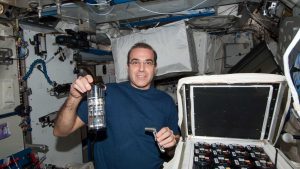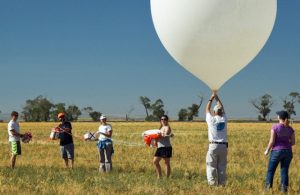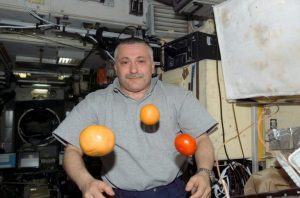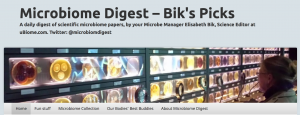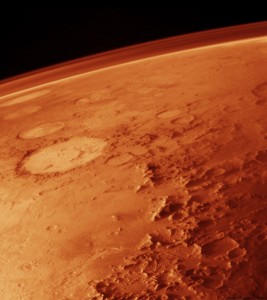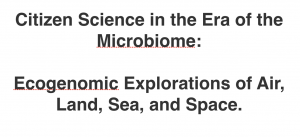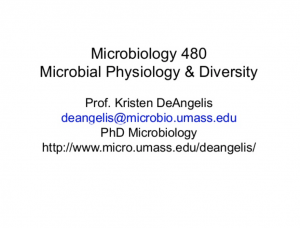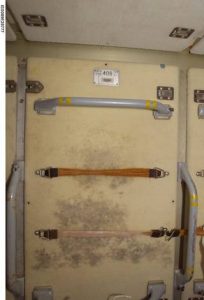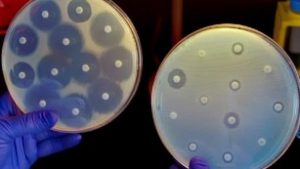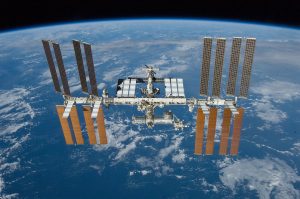So this sounds like there may be some interesting science going on here: Zero gravity had unexpected effects on E. coli samples, causing them to behave differently. That could present problems trying to treat them. Source: Space-Grown Bacteria Could Pose Major Problems for Astronauts But the article includes a bunch of needless fear mongering. What …
When I first saw the headline on this I groaned a little, thinking this was some completely bogus type of project. But actually, upon reading about it in more detail it sounds like a really good public engagement project involving the eclipse, students, space, and microbes. The article: Most-watched eclipse in history could answer the …
Microbes in space have been of interest to the folks at various space agencies for as long as we’ve been sending people into space. Rampant mold growth on the Russian Space Station Mir was probably one of the reasons for the decision to “deorbit” the station (a fancy way of describing crashing into the ocean). …
Microbes indoors DNA metabarcoding to assess indoor fungal communities: Electrostatic dust collectors and Illumina sequencing – Steffi Rocchi – Journal of Microbiological Methods ($39.95) Our study aimed to evaluate metabarcoding and bioinformatic analysis resulting from calibrated samples and samples collected by an electrostatic dust collector (EDC) in dwellings with no moisture problems. Thus, the fungal communities of …
The disease-causing organisms Burkholderia multivorans, B. cepacia, genomovars of the B. cepacia complex (BCC), as well as an unclassified species of Burkholderia, and its relatives Ralstonia pickettii and R. insidiosa account for 60% of the bacterial isolates obtained from the filtrated water system on board the International Space Station (ISS). Members of these genera can …
Federico Lauro, Chris Mason and I (and a few others by now) are looking for editors for a Frontiers Special Topic on Citizen Science in Microbiology. It is important to us that we assemble a diverse panel of editors before we start inviting submissions! We are especially interested in making sure that women and people …
My course slides are updated for 2017 with a new lecture on acellular life. Lecture 01 (3-21-2017) slides from Kristen DeAngelis Lec02 phylogeny (3-23-2017) from Kristen DeAngelis Lecture 03 (3-28-2017) slides from Kristen DeAngelis Lecture 20 (4-20-2017) slides from Kristen DeAngelis Lecture 22 (4-27-2017) slides from Kristen DeAngelis Lecture 23 (5-2-2017) acellular life slides …
Of interest: Source: Alfred P. Sloan Foundation Award Fellowships to Study ISS Microbes | NASA Fellow: Melissa Dsouza, University of Auckland, New Zealand PI-Advisor: Kasthuri Venkateswaran, NASA Jet Propulsion Laboratory Investigating mechanisms for the acquisition and prevalence of antibiotic resistance genes in the ISS cultivable microbiome. Awarded by the NASA Space Biology Program. Fellow: Michael Lee, University of …
Just a quick post here. There is a new CNN story that may be of interest. An antibiotic-resistant superbug will launch from the same pad where the first manned mission to the moon lifted off to be studied on the International Space Station. Source: Why NASA is sending a superbug to the space station – …
Just a quick post here that all the information (including slides and videos) from a really interesting CASIS sponsored workshop are online. The topic relates to the most extreme built environment to date… the International Space Station. The workshop was called “Exploring the Microbiome/Immunome and Disease on the International Space Station” and took place back …
